01: The fate of tax incentives for the energy transition
An exploration of Trump’s policy agenda and the hurdles it may face

“The First 100 Days” is a podcast that explores the legal, regulatory and policy implications that the new US administration may have on global businesses across industries. Hosted by Executive Committee member Eric Leicht, the series features our lawyers’ views on the topics that matter most to our clients.
An exploration of Trump’s policy agenda and the hurdles it may face
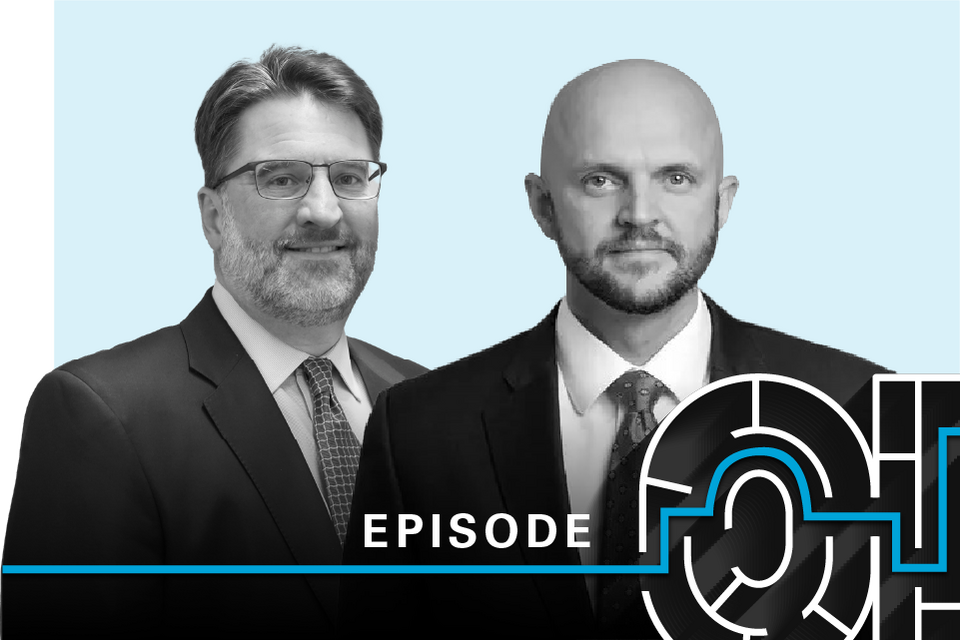
Will tariffs help rewrite the rules of international trade?
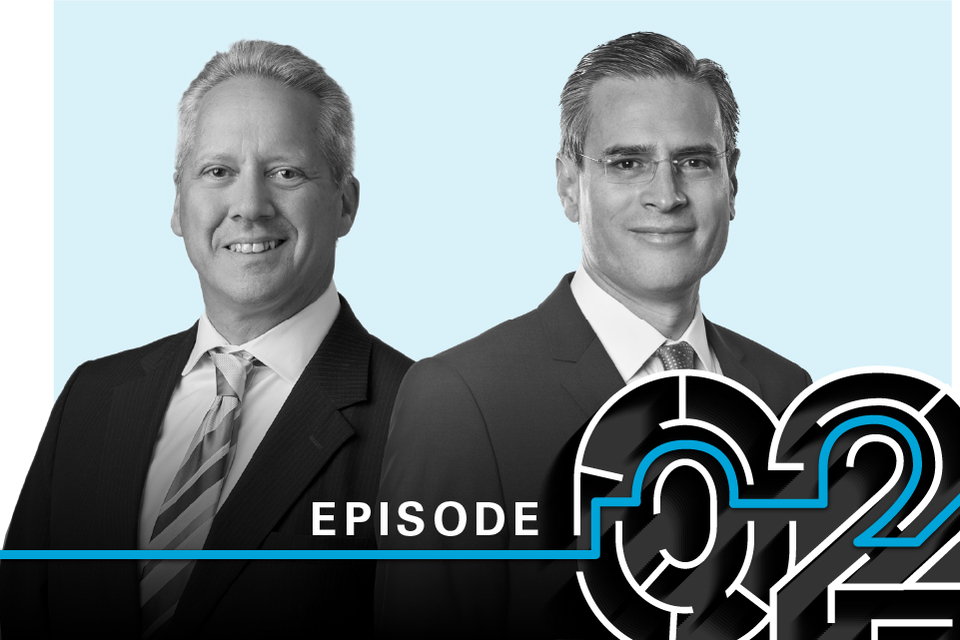
Speed bumps on the road to a lower carbon future
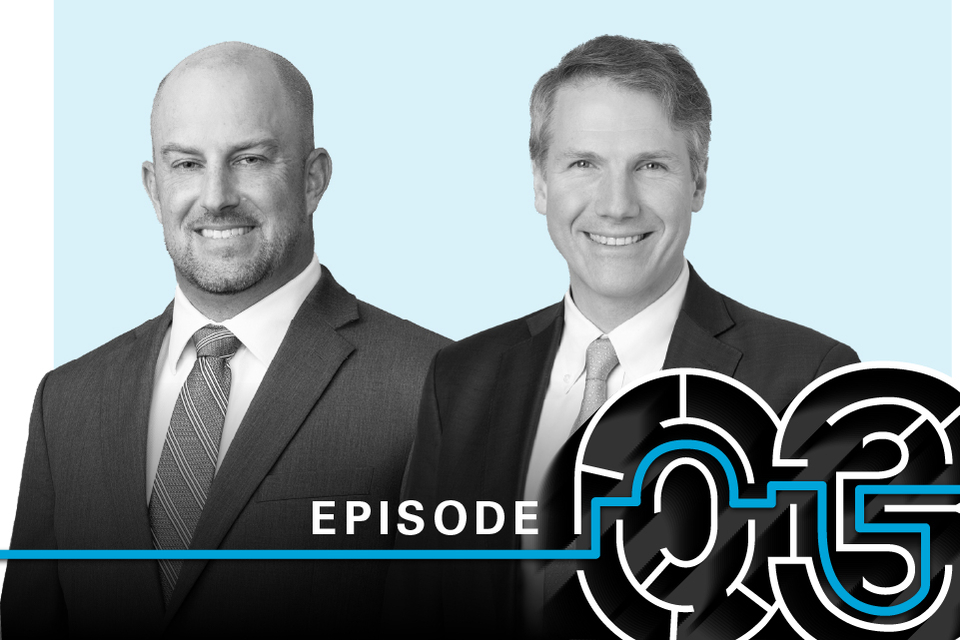
Economic tools advance US foreign policy and national security goals
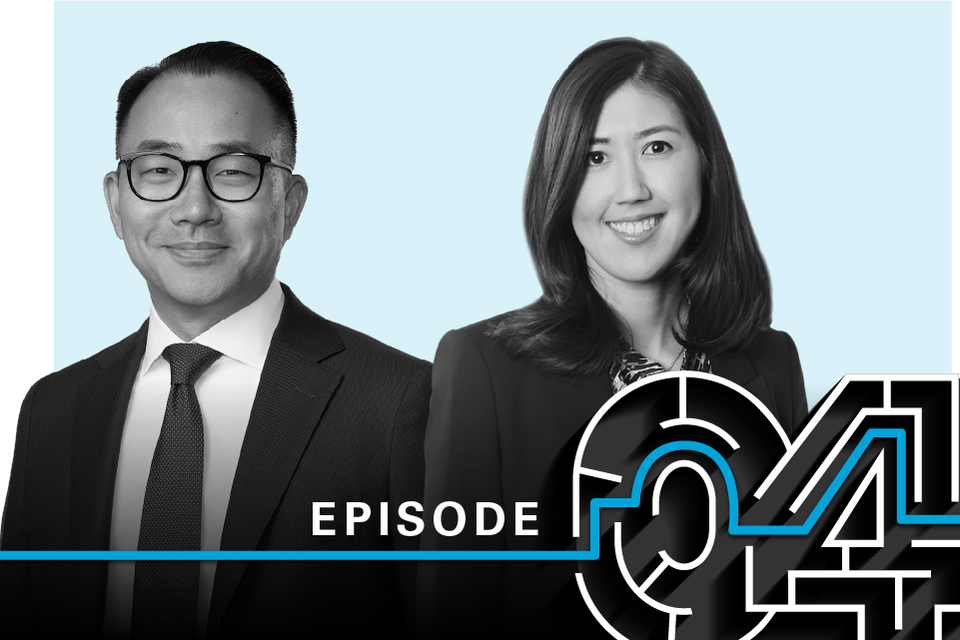
How “America First” policies may impact mineral and hydrocarbon supply chains

Some, but not all, investors may face a friendlier climate
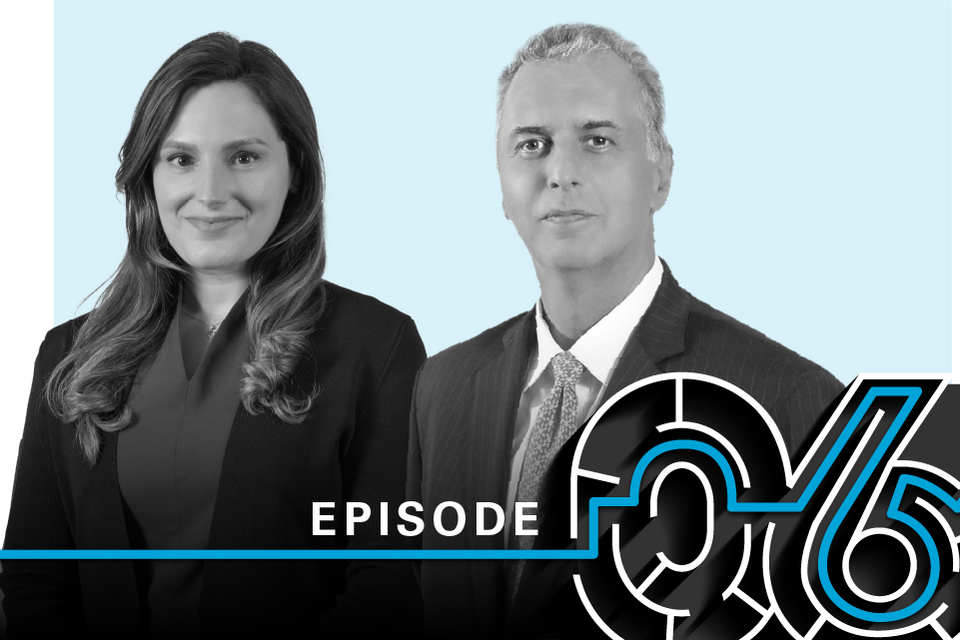
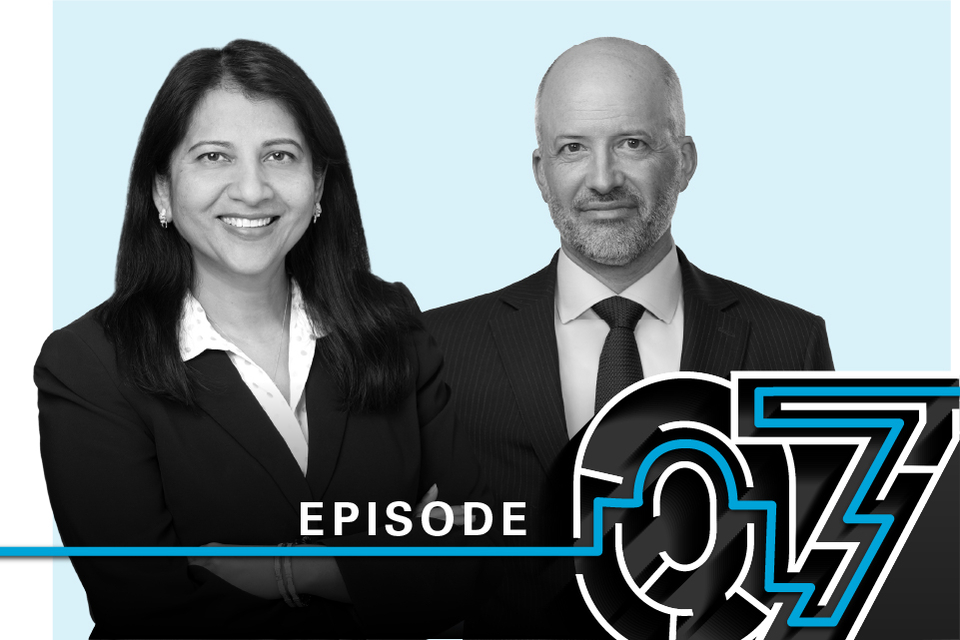
Managing the legal impacts of a new US administration
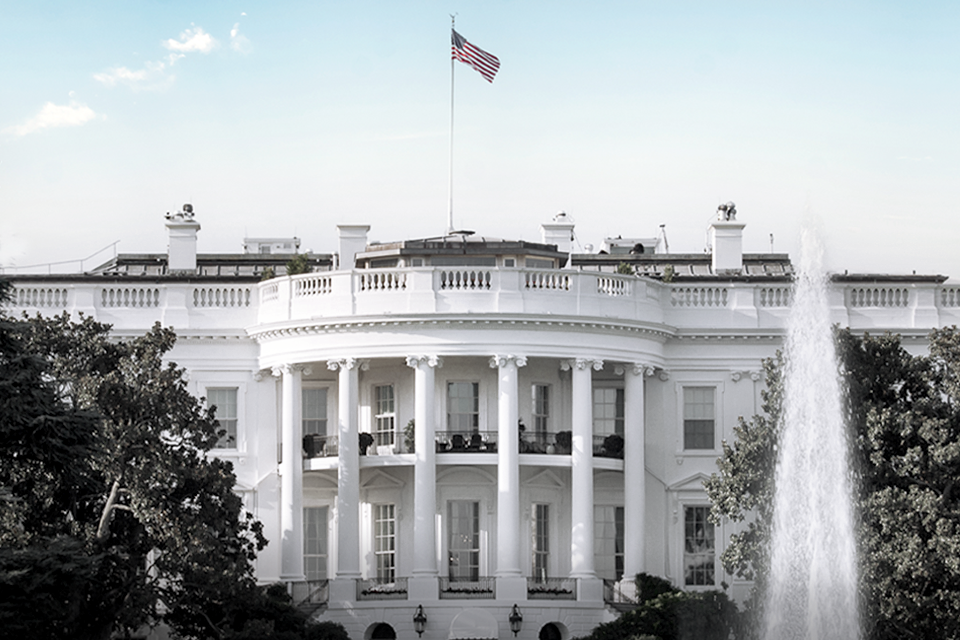

Some, but not all, investors may face a friendlier climate
Listen and subscribe
This episode features partners Farhad Jalinous and Caitlin Powell Gimpel in a discussion about the possible start of a new, friendlier climate for foreign companies looking to do deals in the US. Farhad helps foreign companies get approval from the US government for inbound investments into the US, and also to get the security clearances required to do classified work for the US government. Caitlin focuses on cross-border M&A and private equity transactions with a US nexus. Topics covered in this episode include Trump's "America First" investment policy and its implications for businesses in different countries and sectors, plus possible changes to CFIUS mitigation agreements and Outbound Investing Program regulations.
Listen now
Listen and subscribe Apple Podcasts | Spotify | YouTube Music | Amazon Music
Eric Hello, and welcome to "The First 100 Days," a podcast from White & Case that features our lawyers' views on the likely regulatory, legal and policy implications of the new administration on businesses operating across the globe and in various industries. I'm Eric Leicht, a member of the Firm's executive committee and a partner in our Debt Finance practice. Today I'm joined by my partners, Farhad Jalinous and Caitlin Powell Gimpel. Farhad is based in Washington, DC, and Caitlin is jointly based in Milan and New York. Farhad, Caitlin, can you give us a quick description of your practices? Caitlin Sure, Eric, thanks for having us. I focus on M&A and private equity transactions that are international and cross-border in nature with a US nexus. I've been in this area for many years and have seen a number of the regulatory changes that have come through with respect to the difficulties and the benefits of being a foreign investor coming into the United States and vice versa. Farhad And I'm Farhad Jalinous. I've been a CFIUS lawyer, which is the US process for foreign direct investment screening, for the past 32 years. There are really two things to my practice. One of them is that I help foreign companies get approval from the US government for inbound investments into the United States, which is a CFIUS process. But I also help foreign owned companies get security clearances to do classified work for the US government under the various industrial security programs that are managed by various agencies of the US government, including the Department of Defense, the Department of Energy and the intelligence community. And it's a pleasure to be here. Eric Great. Maybe just to kick things off, could you give me a quick description or explanation about CFIUS? Farhad Sure. So CFIUS is the Committee on Foreign Investment in the United States. It reviews foreign direct investments into the United States by foreign sources. The process has been around since 1988, but the statute went through a number of overhauls over the course of the years. Eric Great. Let's talk a little bit about the Trump administration now, and about a month into his new administration, he issued "America First Investment Policy" National Security Presidential Memorandum. That's a mouthful. This presidential memorandum is meant to ensure that the US remains the top destination for foreign investment, especially for allies and partners. How does the memorandum purport to achieve this? Farhad So, there's a lot that remains to be seen on exactly how this memorandum is going to be executed and implemented. For instance, is it going to go through the preexisting mechanisms under the existing statute and the regulations, or is it going to require passing of new regulations or even an amendment to the statute? One example of that, for instance, is that under this memorandum, greenfield investments are supposed to come within the purview of CFIUS, whereas as up till now, greenfield investments were actually specifically exempted from the CFIUS review process. That, for instance, is likely going to be requiring a statutory amendment to allow for that. But another provision in the memorandum calls for a fast-track process for allies or investors that have really been very conscious of distancing themselves from countries that the committee views as being countries of concern. I can tell you that as a CFIUS practitioner, one of the things that was very welcomed was a provision in the memorandum that said, with respect to mitigation requirements, if we're going to need mitigation to allow a transaction to proceed, that mitigation has to be very specific to the risk that has been identified. And it has to be finite in terms. And it's got to be something that is manageable. That kind of a messaging is really a welcomed opportunity, and I hope that it's going to be paving the way for more seamless inbound investments into the United States by allies, be it on the strategic side, the private equity side or sovereign wealth funds. Caitlin Just to tack onto that a little bit and maybe to loop back around to how the National Security Presidential Memorandum, which I am just going to call the NSPM, actually plans to achieve this result. I think it's important for us all to kind of back out and understand what this memorandum is before we dig into the details. And the reason for that is because it doesn't have the rule of law, right? It's a memo. It's an ideas statement. It doesn't actually change existing law. So, if you're trying to do a transaction in the next week, this probably doesn't affect you very much right now. It's really more a long-term question as to how will this change your investment outlook or how you, as a sovereign wealth fund, a strategic, a private equity fund, are going to approach investing in the United States over the next five, maybe ten, maybe longer years. Eric So, the US has been a top destination for foreign investment. And this memo, it's not the rule of law, as you say. But does it represent a new direction from your perspective? Caitlin I think we're seeing really heavy deregulation, of course, across this entire administration. And the goal of this memo is to say, listen, we are going to further that. We are going to push harder on the policy objectives of the Trump administration, which are reducing administrative burden, making things easier for certain investors to come into the United States and making it harder for certain and different types of investors to come into the United States, aligned with what the policy objectives of the administration are. So, it does change things. I don't know that I would view it as a complete sea change from maybe the prior Trump administration, or even the Biden administration where a number of these policies that were spun up during the Trump administration did continue to percolate and modernize. Farhad, I don't know if you have any thoughts differently, but I see this as a natural and continuing outcropping of the prior administration. Farhad I think that's right. I think from my perspective and based on my experience, it is a tone-setter . It just sets what direction the new administration and the new political appointees for these various agencies are going to be taking as their directive in how the process should be managed and how, as you said, Caitlin, how investments from friendly sources versus sources that are from countries of concern are going to be viewed and executed. Eric And what questions are you getting from clients now on this topic generally , and how are you advising them? Caitlin I think the biggest question I'm getting is : What's going on, and what should I do? And the answer is, wait, don't freak out. So, if clients are feeling lost and confused, which they are, I would encourage all the clients to just take a pause and realize that all of this will have to be implemented in an orderly way. What that really means is if you're trying to invest in the United States, you need to look at your time horizon. Are you trying to do it now in the next three months? Are you trying to do it next year? Are you trying to do it in five years? Because if you are trying to invest in the United States before the ideas that were set forth in the NSPM are implemented, you can largely act under the prior regime. You can move very quickly. And we do have a lot of clients who have come to us and said, "I wanted to invest in the United States. I was interested in making a particular investment. Should I do it now or should I wait?" And that's actually a very good question based on the type of investor that you are. For example, if you think you may be a disfavored investor, or a foreign adversary, you should probably move quickly. If you are looking at it or you are backed by or operational in an area that is favored by the United States, or that the United States views as having pro-US policy objectives, things likely won't change for you from now to next year, except that they might even become easier because of the reduction of certain administrative burdens. Farhad The overwhelming question that we've been getting from clients in our team is: What do I need to do to benefit from the fast track and get into that category? And also: What does it mean in terms of disassociating ourselves from the countries of concern, for instance? Because a lot of times, what you have is clients who are investing not only in the United States but also they have developed relationships with, for instance, China, which is identified by name as one of the countries of concern in the memorandum. And I'm sorry, I keep calling it memorandum when you call it the NRPM. Caitlin But it is a memorandum, so you're not wrong. Farhad Right. Right. We have to see exactly what the administration has in mind. And then we can advise you on what's the best way to get aligned with it. Caitlin And the answers are really going to be so different for different types of investors, not just based on the jurisdiction they come from but also who they are, right? So, if you are a strategic and you're a multinational and you have significant operations in an adversarial nation, that's going to look a lot different than a US-based private equity fund coming to us with the same question, or a UK-based private equity fund looking to start doing portfolio investments in the United States. The approach that you will take will be extremely different. And the risks and rewards to you will be different as well. Eric Yeah, I want to follow up on a couple of fronts. One, how does a company that may have made investments in China or another country of concern, how do they disassociate themselves in a way practically that would allow them to continue to invest in the US in a way that is consistent with their strategic objectives? Farhad That's going to be ultimately the biggest challenge that these companies are going to face, because it's not something that you can do a clean cut. It's going to be more a question of do you recognize the risks that are associated with investing in different parts of the world? And how can you give comfort to the US authorities that where you are located, and how you've done your past investments, is not going to create a risk, for instance, with respect to transfers of technologies and alignment and being under this sphere of influence of an adversarial country? Eric So, we've talked a bit about countries of concern, and I understand that there's differing treatment, based on what your nexus to that country might be. But I want to come back again to the types of investors and how that may impact their view. So, in the current environment, is the approach that a corporate or strategic investor might take meaningfully different from that of a financial investor, like a private equity or sovereign wealth fund? Caitlin Yeah, it absolutely is. If you are a strategic, a multinational that has operations in all sorts of different countries, you are fundamentally seeking to increase your synergies, your efficiencies, make things easier to flow across borders. That's potentially a risk now in certain scenarios and in certain jurisdictions. And so when you're thinking about not just doing a transaction in the United States but doing a transaction somewhere else or operating your business somewhere else, you now need to think about how you can set it up in a way that allows you to credibly and reasonably separate out, as Farhad was just saying, critical technology, decision-making capacity, from being accessible into the US or being accessible to a hostile jurisdiction or an adversarial nation. And what that's going to mean is if you think you want to invest in the US and you have a lot of operations outside the US, you should start thinking about how you're sectioning off flow of intellectual property into China now so that you have a track record of walling off intellectual property for when you go try to do an investment in the United States. You should be looking at: Can I set up different decision-making trees, different organizational structures that allow me to credibly say this is the entity and this is the group that makes decisions for the United States? And it's a completely separate group of individuals with completely separate access to information than the individuals who are making decisions in adversarial nations. So, a lot of this is while not yet the rule of law, things that we can think about and things that we can get ahead of that will make it easier for people to credibly say we're separate. It's already easy or easier if you're a private equity fund because they've been doing this forever, right? You set up your fund. You have portfolio companies. Everybody knows those portfolio companies are completely different from one another, and you hold them separately. That model I see as being something that is going to be brought over to strategic business divisions in a much more rigorous way. Farhad The one additional point that I think we emphasize a lot also is separability of supply chains, that whatever you are going to be doing with respects to your US customers, for instance, may need to have a different supply chain than what you would be doing with the supply chains that you're using somewhere else in the world. I also agree, Caitlin, that with private equity that's going to be very much a model, to the extent possible, for strategics to adopt. I think the real challenge is going to be with sovereign wealth funds, where it's a business objective and an economic objective. But there's also an alignment of what is going on with the policies of the sovereign and what direction they want to go in terms of alignment on the geopolitical stage. Caitlin Yeah, I think that's absolutely right, Farhad. We're probably going to see a lot of really bespoke transactions backed by sovereign wealth funds and some real scrutiny there. Eric So, we've been talking about a friendlier climate for certain foreign investors who are allies of the US. But the presidential memorandum clearly is not equally friendly to all countries and sectors. Can you give me some insights into what does it exactly say about these countries of concern? Caitlin Just so we know which foreign adversaries we're talking about. The administration is very blunt about this. They listed them out. It's the People's Republic of China. They explicitly included Hong Kong and Macao. It's Cuba, it's Iran, it's North Korea, it's Russia , and it's the current regime of Venezuela. Eric And that list is more or less as I would have expected. But let's talk a bit about sectors or technologies that might be a particular focus. Farhad No, I think that the concern around certain types of sectors or technology areas has been around for some time. But I think that it was also during the Biden administration with the outbound investment program that was launched, that it was pretty clear that the areas of concern also include quantum artificial intelligence, semiconductors and microelectronics. I think with this memorandum it's also clear that biotech, hypersonics, aerospace, advanced manufacturing, directed energy and those kinds of areas. The bottom line of it is that whatever can assist in the advancement of the military technologies of an adversarial country is going to be very much of concern. Eric So, when you look at clients and investors outside the US who would like to invest in US businesses, are they intending to make structural changes in the way they invest in the US in order to ensure that they don't run afoul of these new policies? Caitlin Yeah, this is something that we are seeing a lot with respect to how companies in particular are structuring themselves. And then also how investors, whether they are strategics or funds, are looking to structure investments. I know we talked a little bit earlier about how companies can kind of get ahead of this and structure themselves. So maybe here I'll talk about foreign investors, potentially who have involvement with adversarial nations, or really just any multinational investor who doesn't want to come under scrutiny is thinking about this. The memorandum is very explicit that the administration will prioritize and look favorably on passive investors. So, it's essentially saying, "Listen, we're happy to take your money. Just don't expect to get anything back except more money." The idea is: Minimize what people can consider predatory investment, where you take the investment because you want control and you want to have access to critical technologies. And the idea is: If you are a passive investor and you don't have access to direct the flow of critical tech, direct the flow of the supply chain, and really, all you're getting out of it is more money, we're happy to have you. And so foreign investors are looking at that and smartly saying, I can be a minority investor. I can be a passive investor. I don't need a board seat. I don't need governance rights. And a lot of this is accelerating investment trends that we're already seeing in M&A. I would say, if the last ten, 20 years was about buyouts, the most recent five to seven years has really been about minority investments. We will see a lot of really creative capital structures. We will see a lot of really creative consortium arrangements. We will probably see funds who are not US funds historically, looking to open onshore funds in the United States so that they can better make it clear that they are linked to America and trying to invest in the success of America without having undue or unanticipated foreign interference. Eric Let's talk a little bit about the memo and its intention to reduce some administrative burden. The Trump administration has talked a lot about increasing government efficiency and reducing bureaucracy. The presidential memo is similar in certain respects. It specifically mentions reducing the use of certain mitigation agreements. What are these agreements? And what's the impact of the memo here? Farhad So just to give you context, the way that CFIUS conducts its analysis, it's a risk-based analysis. They look at the threat from the foreign source, the investor, the vulnerability of the target and the consequence of that threat actor acting on that vulnerability, either intentionally or unintentionally, or a third party acting through the threat component on the vulnerability. And on that risk-based assessment, they then determine whether the transaction could be approved with or without remedies or mitigation requirements or it has to be blocked. And so what remedies or mitigation they impose is, in principle at least, directed to address that risk in transactions where the government views that the transaction should be allowed to proceed, but that there should be measures undertaken to protect US national security, and that has become a big source of contention with respect to investors from allied countries who get these kind of mitigation agreements that sometimes are in perpetuity as long as they own the asset, and impose all sorts of costs and obligations on them long after any conceivable national security concern has abided. That's a real issue that this provision is addressing. Eric And can you give me some examples of the types of costs and obligations of mitigation agreement might impose? Farhad I'll give you one very common example. For instance, when it's a question of protecting data or technology, oftentimes these mitigation agreements require a logical and physical separation of the servers and systems of the target company from the rest of the organization. That creates real challenges because you cannot integrate, you cannot achieve cost efficiencies. That becomes problematic. Another one, for instance, is with respect to the appointment of third-party monitors to ensure the enforcement of the mitigation agreement. Monitors can be quite expensive. And they can be quite inefficient under certain circumstances. Eric So really again, it comes back to this risk-based analysis that you described and taking a look at, in certain cases, the types of mitigation agreements that might have been historically imposed. Farhad That's the idea. If you're going to have mitigation, it really should address specifically the national risk concern that has been identified. And it should be proportionate to that. Eric And have you seen clients just decline to proceed with a transaction because the scope of the mitigation agreement was just considered too oppressive? Farhad I'm glad to report that, for the most part, clients have been willing to accept our recommendations of the mitigation risk and act accordingly. Caitlin Yeah, and Farhad, I actually feel like you've saved me a bunch of times on stuff like this. Because it is really a leverage point, right? This is a thing that is pretty heavily negotiated if you know that there's going to be a CFIUS issue, or there could potentially be a CFIUS issue. And a lot of what we do when we're negotiating transactions is make sure that we internally are arming our client to fully understand what the quantum of the risk is so that if we have to give something in the legal documentation that is not the full walk right that we would like, we're doing it completely eyes wide open because we have a really good understanding of the risk. Farhad Eric, let me add something to that, and it's not really specific to CFIUS but I think it's very important to consider that it's now not just about CFIUS. It's foreign direct investment screening. And different countries are having their own foreign direct investment screening mechanisms that they have either put into place or have ratcheted up preexisting ones that really need to be considered where the targets have activities in those different countries, so that it's not like you address the CFIUS issue, but then run into a formidable problem in another country where the target business is going to be frustrated because of remedies or block risk. Caitlin This is true. When we're talking about multijurisdictional transactions, yes, the US is relevant, yes, CFIUS is important. But this is a global review, and this is a global trend. If you are operating globally, nearly every country in the world is putting in place similar rules and restrictions. And it's something that we need to be aware of for every transaction. I don't think that it is the US being an outlier here. If anything, I think we are a little bit reactionary in this. Eric I want to take us back to a topic that we touched on at the beginning. I understand that the memo is a tone-setter. It's not the rule of law. So, from a practical standpoint, what needs to happen in order for the ideas that are set forth in this memo to be implemented? Caitlin So, in order to actually make policy changes or regulatory changes, I think we're going to have to be looking to Treasury and to the EPA when we're talking about environmental review because the memorandum does mention expedited environmental review for transactions over one billion dollars. We will probably be looking at the Department of Labor, for example. All of these different entities are going to have to put into place their own regulations. Then there may be entirely new pieces of legislation that will come out as a result of this. That's also a possibility, but that's going to take a lot of time. Farhad I agree with that. I think that we have the mechanisms and the agencies to execute on a great part of this. And so hopefully we're going to see that happen sooner rather than later. But there are portions, as the example that I gave was greenfields falling within the jurisdiction of CFIUS. That, in my view at least, will need some kind of a statutory amendment. But there's a great deal that could be done under the preexisting structures that we have. Eric We talked a little bit before about the outbound investment program. So, I want to touch on that quickly. Looking at US outbound investments and particularly into China, what do you expect here? Farhad With this memorandum and what we are hearing generally, there is an expectation that the outbound investment program is going to extend beyond the sectors that it reaches right now, which is really limited to quantum, artificial intelligence and semiconductors and microelectronics. And, in fact, the memorandum spells out other sectors that are under consideration, which are biotech, hypersonics, aerospace and others. So, I think that there is going to be an expansion of that program. And I'm not sure to what extent it's going to expand beyond right now, PRC, which is identified as the country of concern where the OIP reaches. But I think that with respect to the PRC, we should expect there would be an expansion. Eric So, it really comes down to anything that touches on national security could well be swept up in an expansion of the sectors there. Farhad That's correct. Eric I want to move quickly to tariffs and a better understanding of what impact the imposition of tariffs might have on your business. According to Bloomberg, deal count is the lowest we've seen in years. From what I'm hearing, boardrooms appear to be unsettled by the current environment and are taking a bit of a wait-and-see approach. What's your take on the impact on your business and how clients are seeing this? Caitlin Really, I've talked to a lot of clients about this. We've had a number of "What should we do about tariffs?" sessions, and generally the approach is we need to wait and see. The global supply chain is going to become a little bit less global now, right? A lot of clients who make stuff and need to send it into the United States now need to figure out how much of that stuff needs to already be in the United States in order for them to continue selling their products at a reasonable rate. And so, this is definitely a planning time. People have been asking, because M&A is down, are you guys not busy? And the answer is no, we're so busy. We're doing the planning. We're doing the corporate stuff that allows us to get ready to do deals. And I think that's really where a lot of my clients are right now, is huddled up in a boardroom, huddled up on calls, trying to figure out exactly how to react, not specifically to the imposition of any particular tariff or the non-imposition, as the case may be. But in a world where we know that this is a possibility, how should we react? How should we differentiate our supply chain so that we can still have access to the markets that we want to? I don't know that it in itself has an impact on dealmaking, in the sense that I don't know that people are, as some people have proposed, rushing to the United States to buy domestic manufacturers of whatever it is that may be subject to tariffs next week. It's more a sense that okay, we can't rely on the fact that we can move things easily and at very low cost throughout the world, anywhere we want to, any time anymore. And so how should we rethink our supply chain generally? Farhad Actually, I have something to add to that. Because I think in my universe, what I'm hearing from some clients and other sources is: To what extent is there a risk that this retaliatory action/reaction is going to spill over into foreign direct investment screening? And so, countries are going to start using that as an additional tool to reach the same objective. Time will tell. But I think that if you look at it historically, hopefully that is not going to be an extension of what has been usually just a quid pro quo on tariff impositions by different countries. Eric Yeah. I couldn't help but notice the irony in that, in some respects, the change in CFIUS is opening up opportunities for our allies. Yet at the same time, we're smacking them with tariffs. Clearly, there's some tension going on there, but you could see how it could become weaponized if we went down that path. Caitlin So I think one of the things that we are seeing is that because of the imposition of tariffs and the more protective stance generally that the United States is taking with respect to products being produced in the United States and sold in the United States, is that before some of these regulatory changes come into effect, some people are saying, well, now stuff that's already in the United States or businesses that are already in the United States are much more valuable. I have seen personally one transaction that happened recently where we expected a certain purchase price in an auction, and when we got the bids back, that purchase price was much higher than we thought that it would be because this company has become significantly more valuable because of its position in the US and the portion of its supply chain that is still in the United States. Eric That's super interesting, Caitlin. So, it sounds like potentially the price point for a US business could increase from the perspective of a non-US investor just in order to create a beachhead here for operations on a go forward basis in what could be a more hostile environment down the road. Caitlin That's exactly right. And we think that's kind of a space to watch. Eric I'm looking for a history lesson now. A new administration is always a time of change. But from what we've seen so far, the Trump administration is moving swiftly with a raft of executive orders, tariffs and diplomatic moves that have upended the status quo. Can you give me some historical context for what's happening today in your world, especially since we have Trump's first term as a guide? Farhad I think generally speaking, it seems to me that Trump version two took a lot of lessons from Trump version one. And I think it's very fair to say that whatever historically I've been able to observe over 30 years doing this, it was just a progression of administrations that came and went. And Trump one was certainly disruptive in the approach. And this one continues to be disruptive, but it's not as shocking because it's just more predictable given that what we saw in the first administration. One thing I must tell you is that Trump one, the political appointees in the key agencies of CFIUS, it took forever for them to get nominated and for them to get confirmed. And that had a direct impact on the comfort level of staffers in approving transactions that were sensitive. We're seeing things progress more rapidly, at least so far in this administration, and hopefully that's going to continue. Eric Many countries must want to invest in the US. It's the largest economy in the world. Is it possible that some of these policies can actually change the behavior of countries because they want to stay in the mix and be a part of Team USA who can make these investments? Caitlin Yeah, so I think that what this administration is essentially saying is we are willing very much to have our allies and our friends and people and countries who are interested in advancing US policy goals as co-investors in the project that is the United States. For anyone else, it is going to be expensive and burdensome. And the idea is hopefully that will encourage, in this administration's eyes, the continuation of investment not just in US businesses for the benefit of foreign nationals, but in US businesses and in Project America. Farhad I think if you think about it, there might be three buckets. One of them are the ones that are clearly in the adversarial bucket. And the ones that are clearly in the ally bucket. You can think about some of the "Five Eyes" countries that still continue to squarely fall into this. I think the ones in the middle bucket are going to have a lot of soul-searching to do. Because the truth of the matter is, yes, the US is the biggest economy. But you can also not ignore the rest of the world and emerging markets that are becoming a formidable market and present formidable opportunities. So, I think for those companies that are really in that middle bucket, they need to see how they can reconcile what their objectives are with what they're hearing. And if they cannot truly reconcile that, then there are decisions to be made. And really then the question for them is that are these decisions that are going to matter in the next four years, or is it going to be a longer-term thing? But it's going to be a tough middle bucket as I see it. Eric There's going to be some tough commercial judgments coming ahead for some, no doubt. So, let's, as we come near the close here, I want to just get a quick top takeaway from each of you for clients. Caitlin, I'll start with you. Caitlin Sure. I guess I'd say my top takeaway is to stay the course and be patient. These are administrative changes. These are meaningful policy shifts. But at the end of the day, this is hopefully going to result in an investment environment that prioritizes speed and efficiency. And if that is the case and if they do manage to implement it, we can hopefully look forward to a smoother investment environment in the US or for international entities looking to invest in the US. Farhad I agree with Caitlin. I think that what it is signaling to clients is that if you're from an allied country and you are looking to invest here, we are going to make good on the slogan of the different administrations, that we are open towards foreign direct investment into the United States. And I think over time there have been times where that message has gotten a little more blurred or a little less blurred because of the mitigation that has been imposed, the nature of enforcement and compliance that has been imposed. Caitlin From a deal perspective, I think I might also just add that we all know that dealmaking thrives in an environment of certainty and consistency. And this is clearly not that moment. We are going through a large-scale shift in US foreign policy and US investment policy. But these sound bites, the policy memorandums that have come out, are intended to streamline things. And so generally, while we do see this uncertainty and we see this period of change, this is not something that has never happened before. We kind of just have to keep putting one foot in front of the other while these changes come into place. Eric Farhad, Caitlin, thank you both for joining today. There is so much unpredictability in the world right now. But one thing I can safely predict is that you'll both be very, very busy in the year ahead. Farhad Thank you. Caitlin Thanks very much for having us. Eric Thanks for listening. Please subscribe in your preferred podcast app so you don't miss future episodes. Until next time.
White & Case means the international legal practice comprising White & Case LLP, a New York State registered limited liability partnership, White & Case LLP, a limited liability partnership incorporated under English law and all other affiliated partnerships, companies and entities.
This podcast is prepared for the general information of interested persons. It is not, and does not attempt to be, comprehensive in nature. Due to the general nature of its content, it should not be regarded as legal advice.
© 2025 White & Case LLP